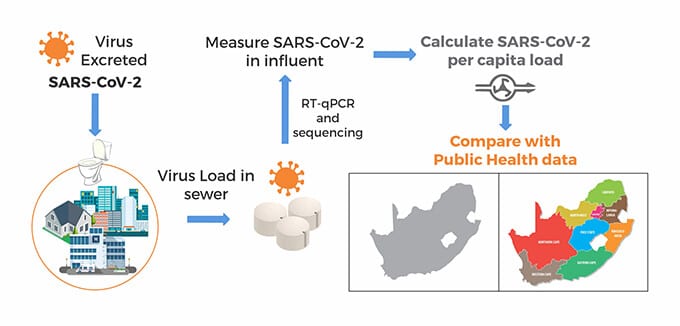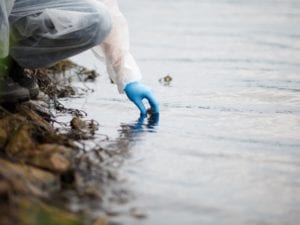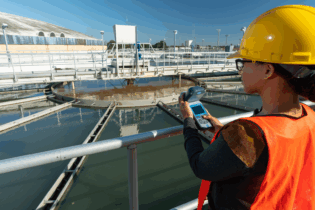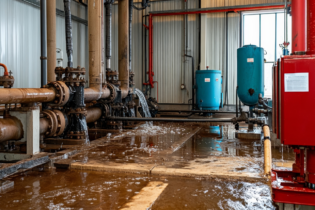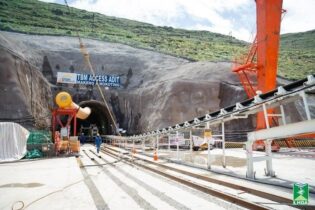The Water Research Commission is monitoring wastewater for #COVID19 infections in communities. The first of the three-phase programme was successfully completed in September.
Launched in May by the Water Research Commission (WRC), the special programme on the Surveillance of COVID-19 in wastewater was conceptualised as the implementation vehicle for monitoring the spread of COVID-19 in communities. The primary aim of this programme is; to share knowledge, stimulate research and innovations on water quality, sanitation and health and support the initiatives of government in curbing the spread of COVID-19. “The need to identify hotspots and the early stages of the disease to curb transmission is imperative. By determining geographical risk areas for infection and more specifically investigating epidemiological characteristics of COVID-19 infections, secondary attack rates and modes of transmission, we could predict second wave infections and mitigate the virus societal and medical impact,” said the commission. The WRC intervention is comprised of three phases, the first being the establishment of the proof of concept of presence of COVID-19 in wastewater and sanitation samples, as well as establishing sample collection and testing protocols so that monitoring results can be reliable and compared. Jay Bhagwan from the commission confirmed that this was succesfuly doen and they have now launched the second phase, which focuses on the establishment of a wider capacity of laboratories in South Africa and puts into operation more communities into surveillance.
